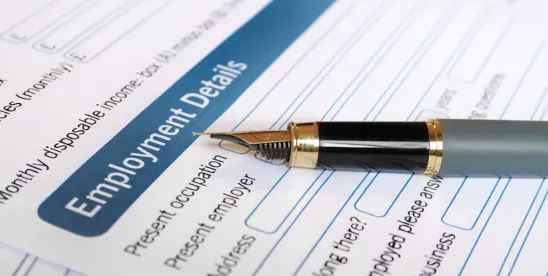A pending lawsuit raises an interesting copyright infringement question – does scraping an AI-generated database of job listings constitute copyright infringement?
In Jobiak v. Botmakers, Jobiak is an AI-based recruitment platform that offers a service for quickly and directly publishing job postings online and leverages machine learning technology to optimize third party job descriptions in real-time and generate an automated database for its job postings. Jobiak alleges copyright infringement (among other claims) because Botmakers scraped Jobiak’s proprietary database and subsequently incorporated its contents directly into its own job listings.
Botmakers moved to dismiss the copyright infringement claims, arguing that Jobiak’s AI-generated database is not copyright protectable. Botmakers argue that, in its complaint, Jobiak admits using proprietary technology to search 100% of all online jobs in real-time and automate the conversion and optimization of job descriptions to meet the online schema requirements. Botmakers alleges that instead of disclosing the AI-generated content on its copyright registration, Jobiak only identified three human authors for the automatic compilation. Botmakers further alleges it is impossible for the three human authors to search 100% of online jobs and then convert and optimize them to meet the online schema requirements. Citing Thaler, Botmakers argues that in the absence of any human involvement in the creation of the work, a work generated autonomously by AI is not eligible for copyright.
A key issue here will be whether Jobiak’s database is even subject to copyright protection. Assuming this database constitutes AI-generated content, it may not qualify for copyright protection.
Digging deeper into the allegations, Jobiak alleges that Botmakers’ infringement is evidenced by the use of a similar layout design and search key title words used at the end of each job description, which was formulated by Jobiak’s proprietary keyword technology. In Jobiak’s job descriptions, “dummy” keywords are inserted which have no relation to the position listed. Jobiak alleges Botmakers copied each of these dummy keywords.
A challenging fact for Jobiak will be that its copyright registration is for a compilation of database information including descriptions, categories, job listings, and layout designs. Botmakers alleges even if Jobiak’s AI-generated database is entitled to copyright protection, Jobiak’s copyright claim still fails because the Complaint does not allege that Botmakers exactly copied the database, which is a compilation. Botmakers argues that Jobiak alleges only that Botmakers copied a few individual listings and not the entire database.
The complaint includes other allegations, including a Computer Fraud and Abuse Act and a California Comprehensive Computer Access and Fraud Act claim, where Jobiak alleges that Botmakers stole information from the automated database by circumventing security barriers intended to protect its servers and computers.
The motion to dismiss also challenges personal jurisdiction because Botmakers is based in Ukraine and has not purposefully directed its activities toward California. The motion to dismiss also noted that Jobiak filed a substantially similar suit against Aspen Technology Labs Inc. in October and that a California court judge dismissed that suit in February for lack of personal jurisdiction. The personal jurisdiction issue may preclude the court here from deciding the substantive issues, but we will follow this case and provide updates.



 />i
/>i

